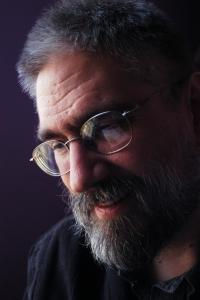Pagan Theology
By Michael York
New York: New York University Press, 2003.
Review by Carl McColman
 The most important word in the title of this book is neither “Pagan” nor “Theology,” but “World.” Readers hoping for a survey of western neopagan thought may be disappointed by this book, which devotes very little attention to the spiritual movement that arose out of Wicca and other attempts to revive or recreate western alternatives to Judaism, Christianity and Islam. But as the subtitle indicates, this short book aims to position pagan theology within the context of world religions. To do this, Michael York has engaged in a process of identifying which religions are primarily pagan in their theological position (such as Hinduism), but he has also paid attention to how pagan strands of thought or practice may be found in religions that, on the surface, are not “pagan” at all—even including the three “Abrahamic” monotheist faiths. Thus, while topics like “Wicca” or “Asatru” receive scant attention, the author takes a much-needed look at how pagan behavior and theology persist within such traditions as Roman Catholicism or Islam.
The most important word in the title of this book is neither “Pagan” nor “Theology,” but “World.” Readers hoping for a survey of western neopagan thought may be disappointed by this book, which devotes very little attention to the spiritual movement that arose out of Wicca and other attempts to revive or recreate western alternatives to Judaism, Christianity and Islam. But as the subtitle indicates, this short book aims to position pagan theology within the context of world religions. To do this, Michael York has engaged in a process of identifying which religions are primarily pagan in their theological position (such as Hinduism), but he has also paid attention to how pagan strands of thought or practice may be found in religions that, on the surface, are not “pagan” at all—even including the three “Abrahamic” monotheist faiths. Thus, while topics like “Wicca” or “Asatru” receive scant attention, the author takes a much-needed look at how pagan behavior and theology persist within such traditions as Roman Catholicism or Islam. For many readers in the neopagan community, the thesis (if not the content) of this book might seem gratuitous. For years, western practitioners of the new paganism have gleefully pointed out to one another how such “Christian” practices as hanging mistletoe in December or hiding eggs at Eastertime are, in fact, evidence of vestigial pagan customs that somehow survived the triumph of non-pagan monotheism. Therefore, York’s methodical ferreting out of the paganism hidden even in religious like Hinduism or Buddhism might seem, well, like old news. And yet, it would be a mistake to judge the book from an “on-campus” neopagan perspective. For this book was written not for the true believers in the pagan path, but rather for non-Pagans, particularly within the academic religious community.
The academic study of religious paganism is still enough in its infancy that the researchers in this field often have to moonlight as apologists for their work. Helen A. Berger’s A Community of Witches: Contemporary Neo-Paganism and Witchcraft in the United States (University of South Carolina Press, 1999) begins with a discussion of whether paganism and witchcraft can properly be deemed religions (Berger argues in the affirmative). To neopagans, such a discussion might seem patronizing or insulting, and yet it represents the reality of entrenched institutions like the American Academy of Religion, where by no means is neopaganism universally recognized as a valid living religious tradition. It is precisely for those who would dismiss postmodern earth spirituality as nothing more than a cultural fad that York’s book is so valuable. By demonstrating the recurrence of pagan behavior and thought throughout the cultures (and religions) of the world, York is arguing persuasively for the legitimacy of not only pagan theology, but neopaganism as a religion.
It sometimes seems that an unbridgeable chasm separates the rarefied world of the academic study of religion (any religion), and the practical, put-the-theory-into-action reality of religious practitioners. For the vast majority of pagan readers whose interest in theology is more practical than theoretical, York’s book may prove frustrating or irrelevant. But for those who understand that his purpose in writing is not to elucidate the reasons why neopagans do what they do, but rather to place western earth-based spirituality within a larger and viable global context, it’s apparent that Pagan Theology is a valuable and timely contribution.
Postscript: In early 2005 a friend of mine who is involved with the American Academy of Religions, after reading this review, sent me the following bit of good news: "While I cannot argue the universal acceptance of Paganism as a valid religion in the eyes of the Academy's membership, I can argue the institutional approval of it. The Contemporary Pagan Studies Consultation proposal was approved — Pagan Studies now has an official place on the AAR's program. As someone who was in the room when the decision was made, I know that the committee that made the approval was very complimentary and supportive of the proposal."


0 Comments:
Post a Comment
<< Home